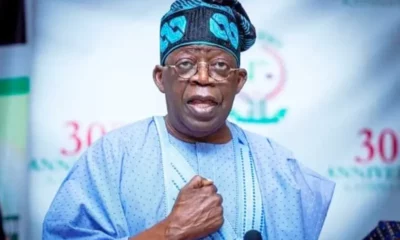Latest News
EFCC has become a monster – Former Lagos Police Commissioner

A former Commissioner of Police in Lagos State, Fatai Owoseni, said on Thursday that the Economic and Financial Crimes Commission has become a monster.
Owoseni, while describing Nigeria as a banana republic, said the EFCC had become a willing tool in the hands of whoever was in power.
The retired police officer spoke in Lagos at the 12th Annual Business Luncheon of a commercial law firm, SPA Ajibade & Co.
The luncheon with theme, ‘The forum for resolution of civil disputes: The courts v law enforcement agencies,’ was chaired by Justice Amina Augie of the Supreme Court, who was represented by Justice Helen Ogunwumiju of the Court of Appeal, while a former Attorney General of Lagos State, Mr Olasupo Shasore (SAN), presented the lead paper.
Owoseni was on the panel of discussants alongside Justice Biobele George will of the Court of Appeal and the Chairman of the Nigerian Bar Association, Lagos branch, Mr Lateef Akangbe.
While responding to the lead paper, Owoseni bemoaned what he described as abuse of office and disregard for the rule of law, saying the EFCC had become a monster.
He said, “The rule of law and the application and the enforcement is interpreted based on which side of the divide you are. If you are any of these governors today, the rule of law is something to you; if you become the Vice-President today, the rule of law is another thing to you; and we are seeing it.”
Owoseni traced the origin of the EFCC to the Task Force on Trade Malpractices, which he described as a self-serving body created purposefully to criminalise civil disputes.
He said, “That task force was used to seize properties, to do all sorts of things and that was what metamorphosed into the EFCC. Depending on which side of the divide you belong, to some of us, the EFCC has become a monster.”
In his contribution, Justice Georgewill knocked the police and the EFCC for the practice of making arrest before investigation.
The Justice said, “In civilised societies, you don’t arrest, detain and investigate; no! You investigate, arrest and detain. But here, you arrest before you investigate; you detain before you investigate. You are supposed to conduct preliminary investigation before you arrest somebody. It is so unfortunate, the police and the EFCC, you have to stop.”





















